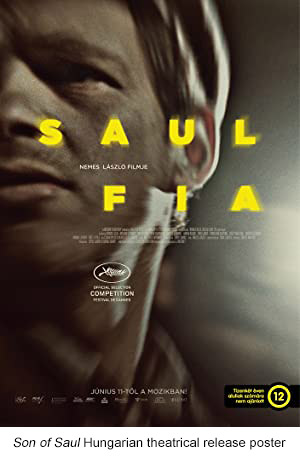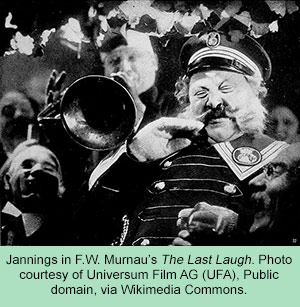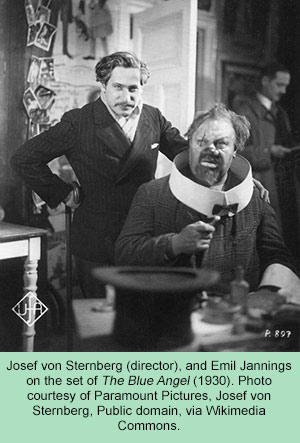
With the Academy Awards around the corner, and broadcasted across the globe, Traveling Boy’s new trivia game features Oscar winners in non-English speaking films. No one will see your answers except for you.

Global Trivia 57 Oscars 1
Start
Congratulations!
You have completed Global Trivia 57 Oscars 1.

You scored %%SCORE%% out of a possible 5 points.
Your performance was: %%RATING%%
Your answers are highlighted below.
Question 1 |

Name the only Foreign Language film that won Best Picture in the main category.
A | The Bicycle Thief (1947, Italy), directed by Vittorio De Sica |
B | The Discreet Charm of the Bourgeoisie (1972, France), directed by Luis Buñuel |
C | Fanny and Alexander (1983, Sweden), directed by Ingmar Bergman |
D | Parasite (2020, South Korea), directed by Bong Joon-ho |
E | Raise the Red Lantern (1991, Hong Kong) directed by Zhang Yimou |
Question 1 :
Answer: D. Parasite

In 2020, Parasite made history with Best Screenplay and a Best Director wins for Bong Joon Ho, and in addition its win for Best International Film, became the first film not in English to win Best Picture at the Oscars in a very competitive year for the Academy's top award.

In 2020, Parasite made history with Best Screenplay and a Best Director wins for Bong Joon Ho, and in addition its win for Best International Film, became the first film not in English to win Best Picture at the Oscars in a very competitive year for the Academy's top award.
Question 2 |

Name the first actress to win an Academy Award for Best Actress for a foreign language performance.
A | Catherine Deneuve |
B | Marlene Dietrich |
C | Gong Li |
D | Sophia Loren |
E | Emmanuelle Riva |
Question 2 :
Answer: D. Sophia Loren in Two Women (1960)

Sophia Loren made history as the first actress to win an Oscar for a foreign language performance in Vittorio De Sica’s Two Women (1960). Her Oscar success, which came for portraying a widow coping with war-torn Italy and her daughter's rape, catapulted her to a new level of international fame, making her one of the biggest stars of the 1960s.

Sophia Loren made history as the first actress to win an Oscar for a foreign language performance in Vittorio De Sica’s Two Women (1960). Her Oscar success, which came for portraying a widow coping with war-torn Italy and her daughter's rape, catapulted her to a new level of international fame, making her one of the biggest stars of the 1960s.
Question 3 |

Name the Foreign Language director who has won the most Oscars for Best Foreign Language Film.
A | Ingmar Bergman |
B | Vittorio de Sica |
C | Federico Fellini |
D | Akira Kurosawa |
E | Francois Truffaut |
Question 3 :
Answer: C. Federico Fellini
The late Italian filmmaker Federico Fellini directed four winning motion pictures, La Strada, Nights of Cabiria, 8½, Amarcord, more than any other director. If Special Awards are taken into account, then Fellini's record is tied by his countryman Vittorio De Sica.
Ingmar Bergman – 3 Best Foreign Language Oscars
Vittorio de Sica – 2 Best Foreign Language Oscars
Akira Kurosawa – 2 Best Foreign Language Oscars
Francois Truffaut – 1 Best Foreign Language Oscars
The late Italian filmmaker Federico Fellini directed four winning motion pictures, La Strada, Nights of Cabiria, 8½, Amarcord, more than any other director. If Special Awards are taken into account, then Fellini's record is tied by his countryman Vittorio De Sica.
Ingmar Bergman – 3 Best Foreign Language Oscars
Vittorio de Sica – 2 Best Foreign Language Oscars
Akira Kurosawa – 2 Best Foreign Language Oscars
Francois Truffaut – 1 Best Foreign Language Oscars
Question 4 |

The Hungarian film Son of Saul won an Academy Award for Best Foreign language film.
A | True |
B | False |
Question 4 :
Answer: A. True
Son of Saul (Saul fia) is a 2015 Hungarian drama film directed by László Nemes, in his feature directorial debut, and co-written by Nemes and Clara Royer. It is set in the in the Nazi Auschwitz concentration camp and Birkenau extermination camp during World War II. The film follows a day-and-a-half in the life of Saul Ausländer (played by Géza Röhrig), a Hungarian member of the Sonderkommando.

The film premiered at the 2015 Cannes Film Festival, where it won the Grand Prix. It was also shown in the Special Presentations section of the 2015 Toronto International Film Festival. The film won the award for Best Foreign Language Film at the 88th Academy Awards.
Son of Saul (Saul fia) is a 2015 Hungarian drama film directed by László Nemes, in his feature directorial debut, and co-written by Nemes and Clara Royer. It is set in the in the Nazi Auschwitz concentration camp and Birkenau extermination camp during World War II. The film follows a day-and-a-half in the life of Saul Ausländer (played by Géza Röhrig), a Hungarian member of the Sonderkommando.

The film premiered at the 2015 Cannes Film Festival, where it won the Grand Prix. It was also shown in the Special Presentations section of the 2015 Toronto International Film Festival. The film won the award for Best Foreign Language Film at the 88th Academy Awards.
Question 5 |
Name the foreign-born actor to win the FIRST Best Actor Oscar.
A | Emil Jannings (Switzerland) |
B | Erland Josephson (Sweden) |
C | Anthony Quinn (Mexico) |
D | Max Schreck (Germany) |
E | Rudolph Valentino (Italy) |
Question 5 :
Answer: A. Emil Jannings (Switzerland)

The first Best Actor was awarded to Swiss-born Emil Jannings (1884 – 1950), for his performances in the silent films, The Last Command (1928), directed by Josef von Sternberg, and The Way of All Flesh (1927), with studio contract director Victor Fleming.
The 1st Academy Awards ceremony, presented by the Academy of Motion Picture Arts and Sciences, honored the best films of 1927 and 1928 and took place on May 16, 1929, at a private dinner held at the Hollywood Roosevelt Hotel in Los Angeles, California. The Swiss-German speaking Jannings had to return to Europe before the ceremony, so the Academy agreed to give him the prize earlier; making him the first Academy Award winner in history.
Emil Jannings’ real name was Theodor Friedrich Emil Janenz, and in the early 1900s, his career in German was already getting noticed by his working the theater under Max Reinhardt's company. Reinhardt was a titan of influence and inspiration on a whole generation of theater and film directors in Germany. His staging of crowds, use of expressionist sets, lighting and acting style greatly influenced the great silent filmmakers of the Weimar Republic, including the iconic directors Fritz Lang, F.W. Murnau, Ernst Lubitsch Fritz Lang and Otto Preminger.
Jannings film career took to new heights due to his association with F.W. Murnau and Josef von Sternberg, both considered Pantheon Directors by film historians.

Jannings and F.W. Murnau
Jannings appeared in Murnau’s 1924 silent film masterpiece, The Last Laugh. Murnau’s unparalleled use of the unchained camera (no doubt borrowed From D. W. by Griffith), took long camera tracking shots to its greatest glory without the interruption of title cards. The narrative was conveyed in purely visual terms with not a word spoken. The Last Laugh stands not only as a triumph of German cinema, but remains a towering cinematic masterpiece, a masterpiece taught in cinema studies programs today throughout the world. The success of The Last Laugh led Murnau to Hollywood where he made another silent film, Sunrise (1927), considered even a greater achievement than The Last Laugh. Murnau died in an automobile accident at age 42.

Jannings and Joseph von Sternberg
The Blue Angel (1930) was Germany’s first major sound film, and Jannings uncomfortable doing his own first sound film, nervously requested for Joseph von Sternberg to go to Berlin and direct it. Von Sternberg gambled by casting Marlene Dietrich, then obscure, as the seductress Lola Lola, the night-club dancer, who leads Jannings' character into depravity. The von Sternberg-Dietrich story, both on-screen and off (Sternberg’s directed her in six more movies) became one of her legions of lovers. Von Sternberg’s films of the mid-'30s are among the most visionary ever made in Hollywood, but in spite of their visual sumptuousness and use of light, contemporary audiences found them dramatically inert. As American auteurist critic Andrew Sarris commented, during the depressions people cried out for bread, while von Sternberg was giving them cake.
When the Second World War commenced, Jannings concentrated on theater and dedicated his acting skills to the Nazi regime and also took part in the realization of Uncle Kruger (1941), an expensive anti-British film production. When the Second World War ended, the US government cleaned his image, and he converted to Catholicism. He played in a few more German movies, but his career never recaptured its brilliance.

The first Best Actor was awarded to Swiss-born Emil Jannings (1884 – 1950), for his performances in the silent films, The Last Command (1928), directed by Josef von Sternberg, and The Way of All Flesh (1927), with studio contract director Victor Fleming.
The 1st Academy Awards ceremony, presented by the Academy of Motion Picture Arts and Sciences, honored the best films of 1927 and 1928 and took place on May 16, 1929, at a private dinner held at the Hollywood Roosevelt Hotel in Los Angeles, California. The Swiss-German speaking Jannings had to return to Europe before the ceremony, so the Academy agreed to give him the prize earlier; making him the first Academy Award winner in history.
Emil Jannings’ real name was Theodor Friedrich Emil Janenz, and in the early 1900s, his career in German was already getting noticed by his working the theater under Max Reinhardt's company. Reinhardt was a titan of influence and inspiration on a whole generation of theater and film directors in Germany. His staging of crowds, use of expressionist sets, lighting and acting style greatly influenced the great silent filmmakers of the Weimar Republic, including the iconic directors Fritz Lang, F.W. Murnau, Ernst Lubitsch Fritz Lang and Otto Preminger.
Jannings film career took to new heights due to his association with F.W. Murnau and Josef von Sternberg, both considered Pantheon Directors by film historians.

Jannings and F.W. Murnau
Jannings appeared in Murnau’s 1924 silent film masterpiece, The Last Laugh. Murnau’s unparalleled use of the unchained camera (no doubt borrowed From D. W. by Griffith), took long camera tracking shots to its greatest glory without the interruption of title cards. The narrative was conveyed in purely visual terms with not a word spoken. The Last Laugh stands not only as a triumph of German cinema, but remains a towering cinematic masterpiece, a masterpiece taught in cinema studies programs today throughout the world. The success of The Last Laugh led Murnau to Hollywood where he made another silent film, Sunrise (1927), considered even a greater achievement than The Last Laugh. Murnau died in an automobile accident at age 42.

Jannings and Joseph von Sternberg
The Blue Angel (1930) was Germany’s first major sound film, and Jannings uncomfortable doing his own first sound film, nervously requested for Joseph von Sternberg to go to Berlin and direct it. Von Sternberg gambled by casting Marlene Dietrich, then obscure, as the seductress Lola Lola, the night-club dancer, who leads Jannings' character into depravity. The von Sternberg-Dietrich story, both on-screen and off (Sternberg’s directed her in six more movies) became one of her legions of lovers. Von Sternberg’s films of the mid-'30s are among the most visionary ever made in Hollywood, but in spite of their visual sumptuousness and use of light, contemporary audiences found them dramatically inert. As American auteurist critic Andrew Sarris commented, during the depressions people cried out for bread, while von Sternberg was giving them cake.
When the Second World War commenced, Jannings concentrated on theater and dedicated his acting skills to the Nazi regime and also took part in the realization of Uncle Kruger (1941), an expensive anti-British film production. When the Second World War ended, the US government cleaned his image, and he converted to Catholicism. He played in a few more German movies, but his career never recaptured its brilliance.
Once you are finished, click the button below. Any items you have not completed will be marked incorrect.
Get Results
There are 5 questions to complete.
You have completed
questions
question
Your score is
Correct
Wrong
Partial-Credit
You have not finished your quiz. If you leave this page, your progress will be lost.
Correct Answer
You Selected
Not Attempted
Final Score on Quiz
Attempted Questions Correct
Attempted Questions Wrong
Questions Not Attempted
Total Questions on Quiz
Question Details
Results
Date
Score
Hint
Time allowed
minutes
seconds
Time used
Answer Choice(s) Selected
Question Text
All done
Deplorable! You need to travel more! This is pathetic!
Deplorable! You need to travel more! This is pathetic!
Embarrassing! Keep trying! We know you're better than that. Play the game again.
Not that bad! But not good either. Play the game again.
Pretty good... but not perfect.
Perfect! Are you brilliant traveler or what?

